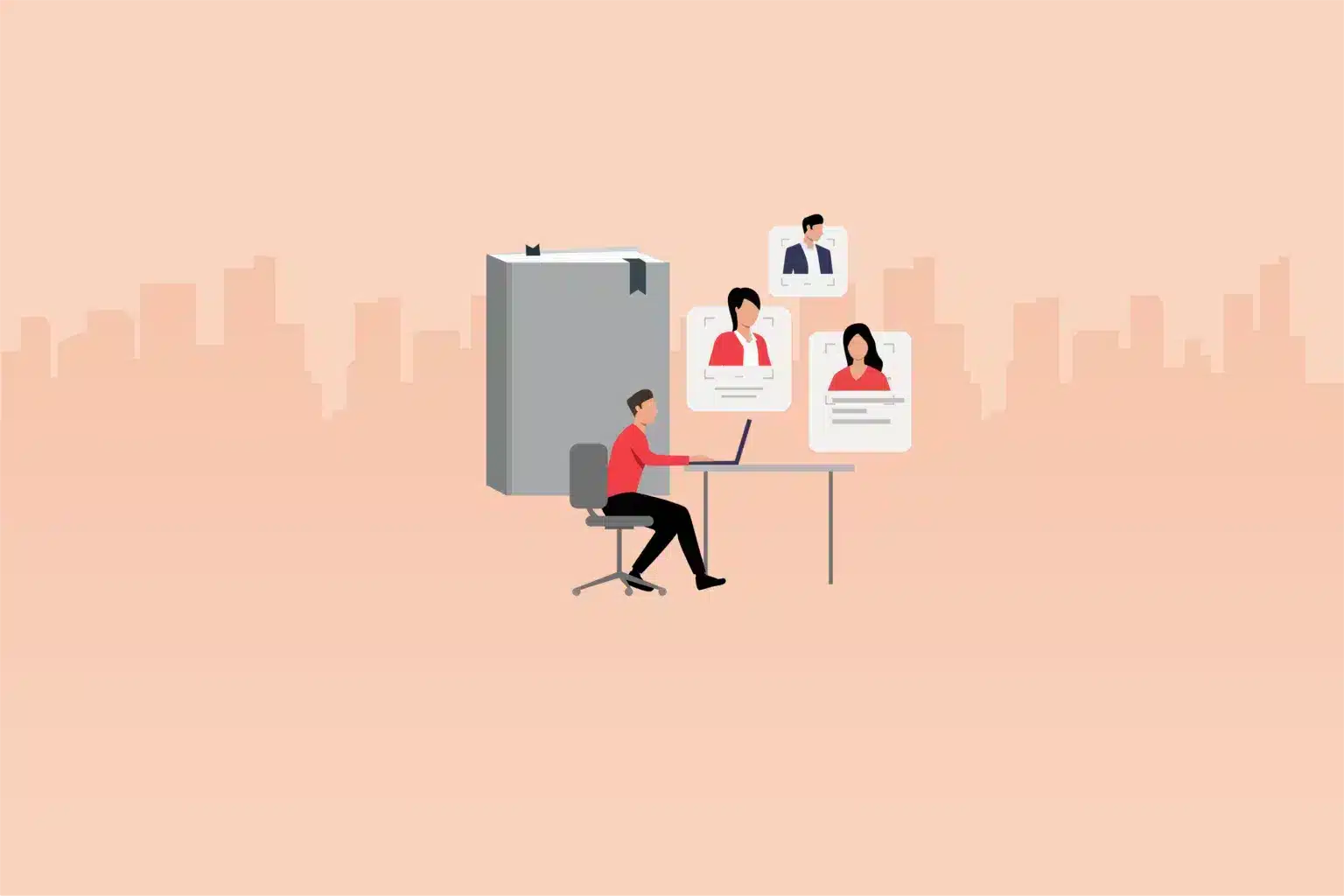The world of insurance claims coordination is evolving rapidly, driven by emerging trends and shifting landscapes. As HR professionals and CXOs seek talented individuals to fulfill the crucial role of Insurance Claims Coordinator, it is essential to understand the changing dynamics of this field.
Recent analytics reveal a growing demand for skilled professionals who possess a unique blend of technical expertise, customer service excellence, and a deep understanding of insurance processes. In this fast-paced environment, where efficient claims management is paramount, organizations are recognizing the pivotal role played by Insurance Claims Coordinators in ensuring smooth and seamless operations. To find the best candidates, it is vital to craft interview questions that assess not only technical proficiency but also the ability to navigate complex situations, demonstrate empathy, and maintain strong relationships with clients.
Here are the top 60 Insurance Claims Coordinator interview questions to ask job applicants:
15 general interview questions for the Insurance Claims Coordinator
- Can you provide an overview of your experience in insurance claims coordination and the types of claims you have handled?
- How do you stay updated with the latest industry regulations and changes that impact insurance claims processing?
- Can you walk us through your process of investigating and evaluating insurance claims?
- How do you ensure accuracy and attention to detail in handling complex insurance claims?
- Describe a challenging claim you encountered and how you successfully resolved it.
- How do you prioritize and manage multiple claims simultaneously while maintaining quality and meeting deadlines?
- How do you effectively communicate with clients, policyholders, and other stakeholders throughout the claims process?
- What strategies do you employ to negotiate and settle claims, ensuring fair outcomes for all parties involved?
- Can you share an example of how you have utilized technology or software tools to streamline and enhance claims coordination?
- How do you handle situations where policyholders or claimants are dissatisfied with the outcome of their claim?
- Describe a time when you had to collaborate with other departments or teams within an organization to resolve a claim efficiently.
- How do you maintain confidentiality and ensure data protection when handling sensitive claim information?
- What steps do you take to minimize fraudulent claims and identify red flags during the claims investigation?
- How do you maintain professionalism and emotional resilience when dealing with difficult or emotional claim situations?
- What are your strategies for continuous improvement in claims coordination, and how do you stay motivated in this role?
5 sample answers to general interview questions for the Insurance Claims Coordinator
- Tell me about your experience in handling insurance claims.
Look for: A candidate who can demonstrate their knowledge and experience in processing insurance claims, including their understanding of relevant policies, procedures, and documentation.
Example answer: “In my previous role as an Insurance Claims Coordinator at XYZ Insurance Company, I successfully handled a high volume of insurance claims from start to finish. I have a deep understanding of various insurance policies and coverage, which allowed me to accurately assess claims, determine eligibility, and process payments efficiently. I am well-versed in navigating insurance software systems and databases to gather the necessary information and documentation. Through my experience, I have developed strong communication skills to effectively interact with policyholders, adjusters, and other stakeholders throughout the claims process.”
- How do you ensure accuracy and attention to detail when processing claims?
Look for: A candidate who emphasizes the importance of accuracy, meticulousness, and methods for minimizing errors in claim processing.
Example answer: “Accuracy and attention to detail are paramount in insurance claims processing. To ensure precision, I meticulously review all claim documents, including policy information, accident reports, medical records, and any other relevant materials. I pay close attention to numerical data, verifying figures and calculations for accuracy. I also follow a systematic approach, double-checking my work before submitting claims to avoid any potential errors. Additionally, I leverage technology tools, such as automated validation systems or data entry software, to minimize human errors and streamline the process.”
- How do you handle difficult or upset policyholders during the claims process?
Look for: A candidate who can demonstrate strong customer service and conflict resolution skills, showing empathy and professionalism in dealing with challenging situations.
Example answer: “Dealing with upset policyholders can be challenging, but I believe in providing exceptional customer service even in difficult circumstances. When faced with an upset policyholder, I actively listen to their concerns, empathize with their situation, and remain calm and composed throughout the interaction. I strive to fully understand their perspective and offer clear explanations about the claims process, timelines, and any necessary documentation. By actively engaging with policyholders, I aim to build rapport and trust. If the situation requires further escalation, I involve supervisors or claims managers to ensure prompt resolution.”
- Describe a time when you had to prioritize multiple claims with competing deadlines.
Look for: A candidate who can effectively manage their workload, prioritize tasks, and meet deadlines while maintaining quality standards.
Example answer: “In my previous role, I frequently encountered situations where multiple claims required immediate attention. During such times, I utilized a systematic approach to prioritize tasks. First, I assessed the urgency and severity of each claim, considering factors such as the severity of the incident, the policyholder’s needs, and regulatory requirements. Then, I allocated time accordingly, focusing on high-priority claims while ensuring I met all necessary deadlines. I also maintained open communication with policyholders and adjusters, managing expectations and providing regular updates to avoid delays. By effectively managing my workload and staying organized, I consistently met deadlines without compromising on quality.”
- How do you stay updated with changes in insurance policies and regulations?
Look for: A candidate who demonstrates a proactive approach to staying informed about industry developments, policy changes, and regulatory updates.
Example answer: “I understand the importance of staying up to date with insurance policies and regulations. To ensure I remain current, I regularly participate in industry conferences, workshops, and webinars. I am an active member of professional insurance associations, which provide access to valuable resources and networking opportunities. Additionally, I consistently review industry publications, newsletters, and online forums to stay informed about emerging trends and regulatory changes. I am proactive in seeking out training opportunities provided by my employer or external sources to enhance my knowledge and skills in insurance claims processing.”
15 behavioral interview questions for an Insurance Claims Coordinator
- Tell me about a time when you had to handle a complex insurance claim. How did you approach it, and what was the outcome?
- Can you describe a situation where you had to resolve a dispute between an insurer and a policyholder? How did you handle it, and what was the result?
- Share an example of a challenging deadline you had to meet for processing insurance claims. How did you ensure timely completion?
- Describe a time when you identified fraudulent activity during the claims process. How did you handle it, and what actions did you take?
- Tell me about a situation where you had to coordinate with multiple stakeholders, such as adjusters, legal teams, or medical professionals, to process a claim successfully.
- Can you recall a time when you had to handle a high-pressure situation while maintaining accuracy and attention to detail in claim processing?
- Share an experience where you had to communicate difficult or complex insurance claim decisions to policyholders. How did you ensure clarity and manage their expectations?
- Describe a time when you had to adapt your claim processing approach to accommodate changes in insurance policies or regulations.
- Tell me about a situation where you identified process inefficiencies or bottlenecks in claim processing. What steps did you take to improve the process?
- Can you provide an example of a time when you had to handle a sensitive or confidential claim? How did you ensure data privacy and maintain professionalism?
- Share a situation where you had to handle a claim that involved multiple coverage policies. How did you navigate the complexities and ensure accurate assessment and processing?
- Describe a time when you had to handle a denied claim. How did you approach the situation, and were you able to successfully overturn the decision?
- Tell me about a time when you had to handle a large volume of claims within a short period. How did you manage your workload and ensure all claims were processed efficiently?
- Share an experience where you had to handle a claim involving a rare or unusual circumstance. How did you gather the necessary information and make an informed decision?
- Can you recall a time when you had to provide training or guidance to new team members regarding claim processing procedures? How did you ensure their understanding and competence in the role?
5 sample answers to behavioral interview questions for the Insurance Claims Coordinator
- Tell me about a time when you had to handle a complex insurance claim. How did you approach it, and what was the outcome?
Look for: A candidate who can effectively manage complex situations, demonstrate problem-solving skills, and highlight successful outcomes.
Example answer: “In one instance, I received a complex insurance claim involving a major property damage due to a natural disaster. To handle it, I first conducted a thorough investigation by coordinating with the policyholder, adjusters, and field experts. I reviewed the policy coverage, gathered extensive documentation, and consulted relevant regulations. This helped me assess the claim accurately and determine the eligible coverage. I presented my findings to the insurer and provided a comprehensive report supporting the claim. As a result, the insurer approved the claim promptly, and the policyholder received the necessary compensation for the damages incurred.”
- Can you describe a situation where you had to resolve a dispute between an insurer and a policyholder? How did you handle it, and what was the result?
Look for: A candidate who can handle conflict resolution, demonstrate effective communication skills, and showcase their ability to find mutually satisfactory solutions.
Example answer: “I encountered a dispute between an insurer and a policyholder regarding the valuation of a total loss claim. To address it, I initiated a meeting with both parties to understand their concerns and perspectives. I carefully reviewed the policy terms, gathered additional evidence, and analyzed market values for similar assets. I facilitated open and transparent communication between the insurer and the policyholder, presenting them with the objective valuation data and explaining the rationale behind it. Through active negotiation and finding a middle ground, we reached an agreement that satisfied both parties, and the claim was settled amicably.”
- Share an example of a challenging deadline you had to meet for processing insurance claims. How did you ensure timely completion?
Look for: A candidate who can handle time-sensitive tasks, prioritize effectively, and demonstrate their organizational skills.
Example answer: “I had a situation where I needed to process a large number of claims within a tight deadline due to regulatory requirements. To ensure timely completion, I created a detailed work plan, dividing the tasks based on urgency and complexity. I communicated with the team, delegating responsibilities and providing clear instructions. I utilized automation tools and streamlined processes wherever possible. I closely monitored the progress, addressing any bottlenecks promptly. By effectively managing the workload, maintaining open communication, and staying focused, my team and I successfully met the challenging deadline while ensuring the accuracy and quality of each processed claim.”
- Describe a time when you identified fraudulent activity during the claims process. How did you handle it, and what actions did you take?
Look for: A candidate who is attentive to detail, vigilant in detecting fraudulent activity, and demonstrates their ability to take appropriate actions.
Example answer: “During a routine claims review, I noticed a series of suspicious patterns indicating potential fraudulent activity. I immediately conducted a thorough investigation, gathering additional evidence and consulting with the fraud detection unit. I collaborated with law enforcement authorities, sharing the relevant information to support their investigation. Simultaneously, I initiated internal protocols, flagging the claim for further scrutiny and ensuring that the policyholder was contacted for additional verification. Through the combined efforts, the fraudulent activity was confirmed, and appropriate measures were taken, including denial of the claim and legal actions against the individuals involved.”
- Tell me about a situation where you had to adapt your claim processing approach to accommodate changes in insurance policies or regulations.
Look for: A candidate who is adaptable, stays updated with industry changes, and can adjust their processes accordingly.
Example answer: “When new regulations were implemented that required changes in claim processing procedures, I proactively researched and studied the updated policies. I organized a training session for the claims team, ensuring they were aware of the changes and understood the implications. I updated the internal guidelines and workflows accordingly, incorporating the new requirements while ensuring compliance. I communicated these changes to other stakeholders, including adjusters and policyholders, providing clear explanations and managing their expectations. By embracing the necessary adjustments, we successfully aligned our claim processing approach with the updated insurance policies and regulations.”
15 personality interview questions for the Insurance Claims Coordinator
- How would you describe your approach to problem-solving and decision-making?
- Can you tell me about a time when you demonstrated resilience and adaptability in the face of unexpected challenges?
- Describe a situation where you had to work collaboratively with a team to achieve a common goal. How did you contribute to the team’s success?
- How do you manage your time and prioritize tasks in a fast-paced and demanding work environment?
- Describe a time when you had to handle a difficult or demanding policyholder. How did you maintain professionalism and ensure their satisfaction?
- What strategies do you employ to stay organized and maintain attention to detail in your work?
- How do you approach building and maintaining relationships with stakeholders such as insurers, adjusters, or policyholders?
- Can you describe a situation where you had to think creatively to find a solution to a problem or improve a process?
- How do you handle stress and pressure in the workplace? Can you provide an example of a high-pressure situation you successfully managed?
- Describe a time when you had to communicate complex insurance concepts or procedures to someone who had limited knowledge in the field. How did you ensure their understanding?
- How do you stay updated with industry trends and developments in the insurance claims field?
- Describe a situation where you had to handle confidential or sensitive information. How did you ensure data privacy and maintain confidentiality?
- What motivates you to deliver exceptional customer service? Can you provide an example of a time when you went above and beyond to satisfy a policyholder’s needs?
- How do you approach learning new software or technology tools related to insurance claims processing?
- Describe a time when you had to make a difficult decision regarding a claim. How did you weigh the different factors and arrive at a resolution?
5 sample answers to personality interview questions for Insurance Claims Coordinator
- How would you describe your approach to problem-solving and decision-making?
Look for: A candidate who demonstrates a logical and analytical approach to problem-solving, as well as the ability to make sound decisions based on available information.
Example answer: “My approach to problem-solving involves gathering all the necessary information, analyzing the situation from multiple angles, and considering potential solutions and their implications. I strive to approach problems systematically, breaking them down into manageable components and identifying the root causes. By utilizing critical thinking skills, I evaluate the available options and select the one that aligns best with the overall goals and objectives. For example, in a recent claim dispute, I conducted a thorough investigation, reviewed policy terms, consulted with relevant experts, and carefully weighed the evidence before making a fair and objective decision.”
- Can you tell me about a time when you demonstrated resilience and adaptability in the face of unexpected challenges?
Look for: A candidate who can effectively handle unexpected challenges, adapt to changing circumstances, and maintain a positive attitude.
Example answer: “In my previous role, there was a sudden surge in claim volume due to a natural disaster, which significantly exceeded our team’s capacity. It was a challenging situation, but I remained calm and focused. I quickly adjusted my priorities, reorganized workflows, and collaborated with team members to redistribute the workload. I also communicated with policyholders, managing their expectations and assuring them that their claims were being handled diligently. By maintaining resilience and adaptability, we successfully managed the increased workload and ensured timely processing of claims.”
- Describe a situation where you had to work collaboratively with a team to achieve a common goal. How did you contribute to the team’s success?
Look for: A candidate who demonstrates strong teamwork skills, effective communication, and the ability to contribute positively to team dynamics.
Example answer: “In a recent large-scale claim investigation, I collaborated closely with a cross-functional team consisting of adjusters, legal experts, and external consultants. To ensure the team’s success, I actively participated in team meetings, sharing my insights and expertise related to claims processing. I fostered open communication, ensuring that all team members had a clear understanding of their roles and responsibilities. I actively listened to their perspectives, considered their input, and encouraged a collaborative environment. By facilitating efficient information sharing and coordinating efforts, we achieved our common goal of conducting a thorough investigation and providing a fair and accurate claim resolution.”
- How do you manage your time and prioritize tasks in a fast-paced and demanding work environment?
Look for: A candidate who can effectively manage time, prioritize tasks, and maintain productivity in a fast-paced environment.
Example answer: “To manage my time and prioritize tasks in a fast-paced work environment, I utilize various strategies. Firstly, I start my day by creating a to-do list and identifying high-priority tasks based on deadlines and importance. I break down complex tasks into smaller, manageable subtasks to ensure progress. I also leverage technology tools, such as task management software or calendars, to stay organized and track deadlines. Additionally, I practice effective time-blocking, allocating specific time slots for focused work. By maintaining clear priorities, staying organized, and avoiding distractions, I can effectively manage my time and ensure that critical tasks are completed in a timely manner.”
- How do you approach building and maintaining relationships with stakeholders such as insurers, adjusters, or policyholders?
Look for: A candidate who demonstrates strong interpersonal skills, customer service orientation, and the ability to build positive relationships with stakeholders.
Example answer: “Building and maintaining relationships with stakeholders is essential in the insurance claims process. I approach it with a customer-centric mindset, aiming to provide with with exceptional service and support. I actively listen to their concerns and needs, demonstrating empathy and understanding. I communicate clearly and effectively, ensuring that stakeholders are informed about the progress and status of their claims. I also make a conscious effort to establish trust by being transparent, honest, and delivering on commitments. By fostering positive relationships, I aim to build long-term partnerships based on mutual respect and satisfaction.”
When should you use skill assessments in your hiring process for Insurance Claims Coordinator?
Skill assessments can be valuable in the hiring process for Insurance Claims Coordinators to ensure that candidates possess the necessary skills and abilities to perform the job effectively. Assessments provide objective and standardized evaluations of candidates’ capabilities, helping employers make informed hiring decisions.
Insurance Claims Coordinators require a range of skills, including attention to detail, analytical thinking, problem-solving, communication, time management, and customer service. Skill assessments allow employers to directly evaluate these competencies, going beyond resumes and interviews.
Some assessments that can be used to assess the skills of Insurance Claims Coordinators include:
- Attention to Detail Test
This test measures a candidate’s ability to identify and accurately process detailed information, a crucial skill in claims processing.
- Situational Judgment Test
This assessment presents candidates with realistic scenarios they may encounter in their role and evaluates their ability to make effective decisions and handle complex situations.
- Communication Skills Assessment
This evaluation assesses a candidate’s written and verbal communication abilities, including clarity, professionalism, and customer service orientation.
- Time Management Assessment
This assessment measures a candidate’s ability to prioritize tasks, meet deadlines, and effectively manage their workload, critical skills for claims coordinators.
- Problem-Solving Test
This test evaluates a candidate’s problem-solving skills and ability to analyze situations, identify solutions, and make informed decisions.
By incorporating skill assessments into the hiring process, employers can gain deeper insights into candidates’ abilities, ensure a better fit for the role, and enhance the overall quality of their hiring decisions.
Use our interview questions and skill tests to hire a talented Insurance Claims Coordinator
Unlock the potential of your hiring process with Testlify’s comprehensive skill assessments and interview questions specifically designed for Insurance Claims Coordinator.
Our extensive test library offers a wide range of assessments, including cognitive function, personality, situational judgment, programming, and more. By leveraging these assessments, you can objectively evaluate candidates’ abilities, ensuring you shortlist the most talented individuals efficiently.
To further enhance your hiring process, we invite you to book a free 30-minute live demo. Our expert team will guide you through the platform, showcasing relevant skill tests tailored to your hiring needs. With our support, you can streamline candidate selection, saving valuable time and resources.
Ready to find the perfect fit for your Insurance Claims Coordinator role? Testlify provides the tools you need to make informed hiring decisions. Explore our skill assessments and interview questions today to uncover exceptional talent for your team.








